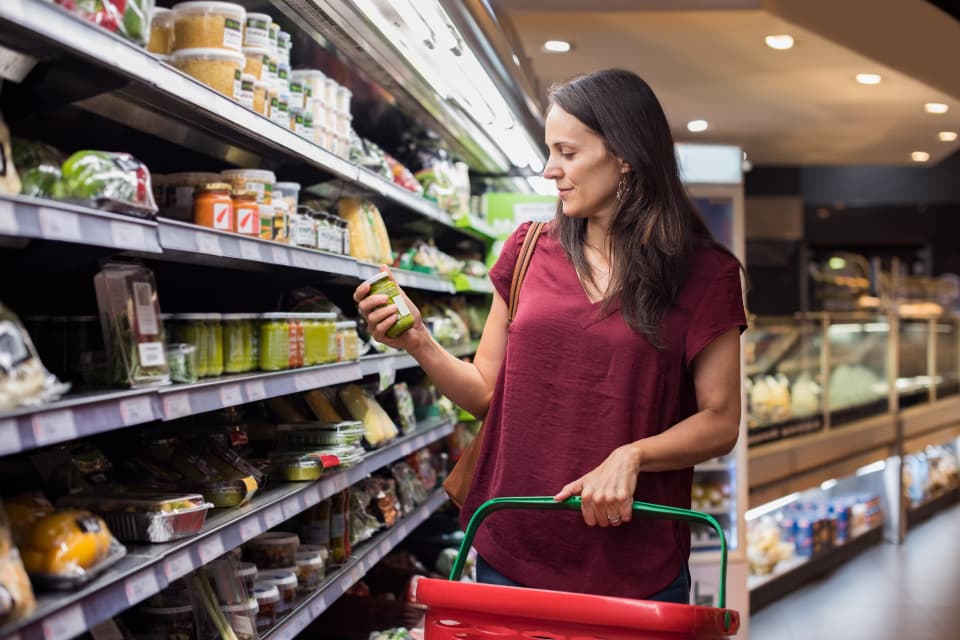Health communication and food labelling
We are testing creative and innovative ways of conveying information about food and drinks to the public.
Around 60% of the population are overweight which increases the risk of developing diseases and dying prematurely.
Our research is investigating simple ways in which food can be labelled to make it easier for people to select healthier options. We are most interested in the effects of physical activity calorie equivalent (PACE) labelling on the selection of food and drinks by the public.
Theme lead

Research spotlights
2025
- Iris N, Munir F, Daley AJ. Physical activity calorie equivalent (PACE) food labelling on discretionary foods in secondary school canteens in England: an efficacy cluster randomised controlled trial. Int J Behav Nutr Phys Act 2025. DOI: 10.1186/s12966-025-01710-1
2023
-
Daley AJ, Kettle VE, Roalfe AK. Implementing physical activity calorie equivalent (PACE) food labelling: Views of a nationally representative sample of adults in the United Kingdom. PLoS One, 2023. DOI: 10.1371/journal.pone.0290509
-
Iris N, Munir F, Daley AJ. Examining young people’s views and understanding of traffic light and physical activity calorie equivalent (PACE) food labels. BMC Public Health, 2023. DOI: 10.1186/s12889-023-16019-6
Recent news articles
PACE labelling and calorie intake
-
The Telegraph: Food labels could tell you how much exercise is needed to burn off that slice of cake
-
Guardian Australia: Researchers urge Australia to adopt food labels estimating exercise needed to ‘burn off’
-
Daily Mail: Strap on your hiking boots TODAY! Six-hour stroll is needed to burn off just one Easter egg, expert says
-
The Conversation: It could take 12 hours of walking to burn off your Christmas dinner
-
Daily Mail: Burn off that Christmas dinner... with a 12-hour, 50-mile walk!
-
The Times: To burn off Christmas dinner just go jogging... for six hours
-
Evening Standard: Twelve hours of walking needed to burn off average Christmas dinner
-
HCM People: Amanda Daley
-
New Food: Food labels should include physical activity calorie equivalent, says study
-
BBC News: 'Four hours to walk off pizza calories' warning works, experts say
-
The Guardian: Exercise advice on food labels could help to tackle the obesity crisis
-
Sky News: Food labels should say how much exercise is needed to burn off the calories, new study
Videos, blogs and podcasts
PACE labelling and health
- Physical Activity Researcher podcast: Physical Activity Calorie Equivalent Labelling of Food: Does it Work?
-
NCSEM public lecture: Should the government include physical activity calorie equivalent (PACE) labelling on food and drinks to decrease excessive calorie consumption?
-
Bloomberg Quick Take: Forget Calorie Counting. Food Labels With Exercise Quotas May Be More Effective
-
ITV News: Food labels showing exercise needed to burn calories ‘could help tackle obesity’
-
BBC Breakfast: Calories & Food Labels



